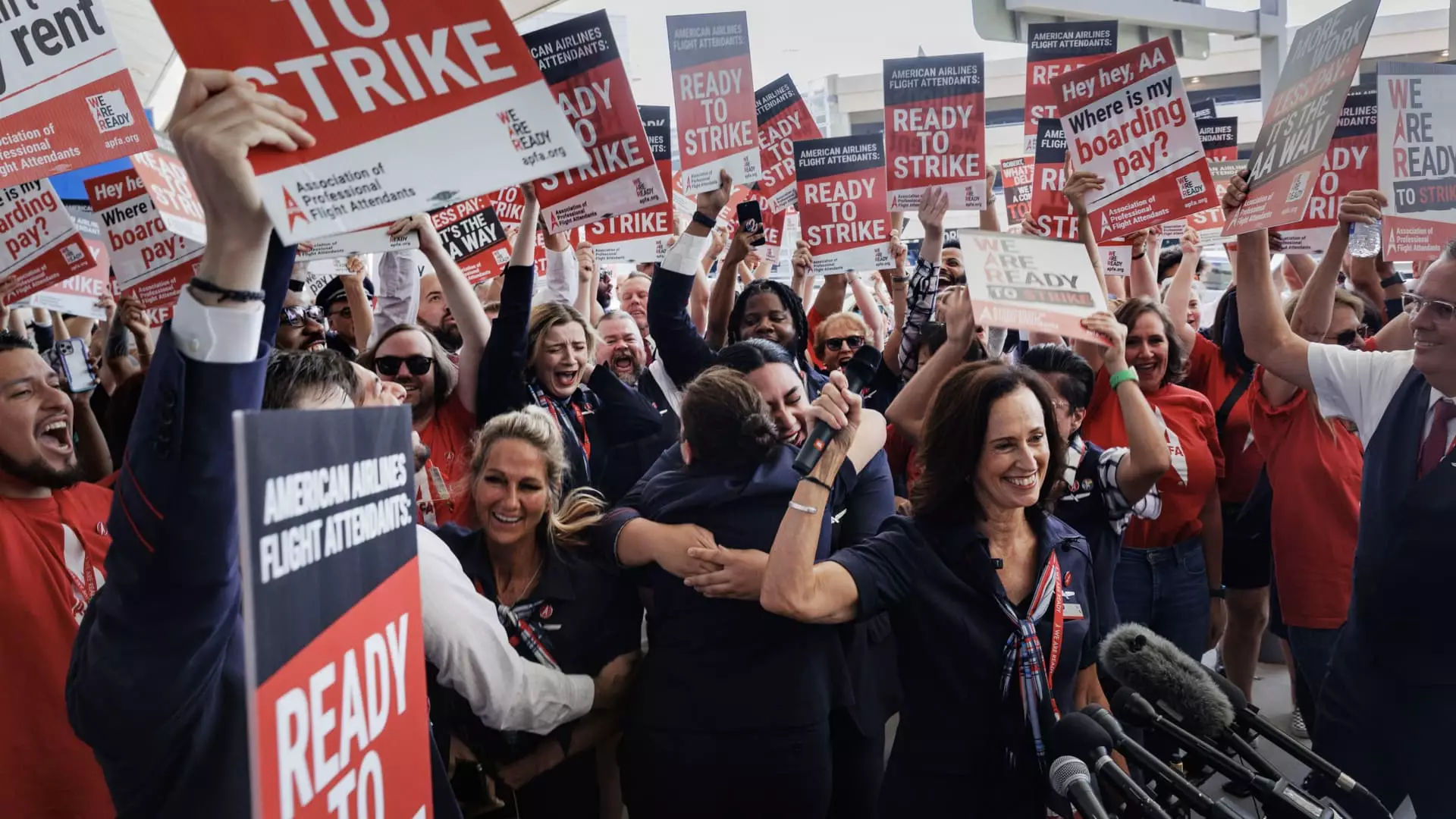In a significant advancement for labor relations in the airline industry, flight attendants at American Airlines have ratified a new five-year contract that promises substantial pay increases and retroactive compensation. The agreement, endorsed by a remarkable 87% of voting members of the Association of Professional Flight Attendants (APFA), stands as one of the most noteworthy resolutions in recent labor negotiations within the sector. Effective from October, flight attendants will experience salary hikes of up to 20.5%, a change that underscores the hard-fought battle for fair compensation amidst shifting economic realities.
The approval of this contract is not merely a victory for American Airlines’ approximately 28,000 flight attendants; it also symbolizes a pivotal shift in industry-wide labor dynamics. The negotiations preceding this agreement were marked by tense discussions and the looming threat of a strike, reflecting the urgency felt by flight crews following the pandemic, which severely affected their working conditions and financial stability. The airline sector has been experiencing a groundswell of union activity, with many workers seeking better pay and improved work rules in response to increased living costs and the aftermath of COVID-19.
The role of government representatives in these negotiations is also noteworthy, as Transportation Secretary Pete Buttigieg and Labor Secretary Julie Su lent their influence during discussions in June, mediated by the National Mediation Board (NMB). Their involvement exemplifies the increasing advocacy for labor rights at the federal level, as more than 160 lawmakers have also actively pushed for progressive contract resolutions within the airline industry. Such support demonstrates the broader recognition of flight attendants’ struggles and aims to establish a precedent for fair labor agreements across various sectors.
The contract’s approval is part of a larger trend where numerous sectors, including the automotive and entertainment industries, have seen workers gaining ground through negotiations, often culminating in robust contracts following strikes or other pressure tactics. In contrast, airlines like United and Alaska Airlines are still navigating their own contentious negotiations, a testament to the ongoing challenges workers face in securing fair treatment in a revitalizing market.
Future Challenges and Considerations
As American Airlines prepares to implement these new wage increases, the implications for the airline industry remain to be seen. With other unions still engaged in negotiations, the results achieved by APFA may become a benchmark for what cabin crews can pursue in their own contracts. However, the ongoing economic pressures might present further challenges for labor groups as they advocate for enhancements to their working conditions and remuneration.
While the recent ratification marks a hopeful milestone for American Airlines flight attendants, it also raises critical questions about the future landscape of labor relations in the airline industry and beyond, particularly as workers continue to assert their rights in the face of a changing economic climate.

